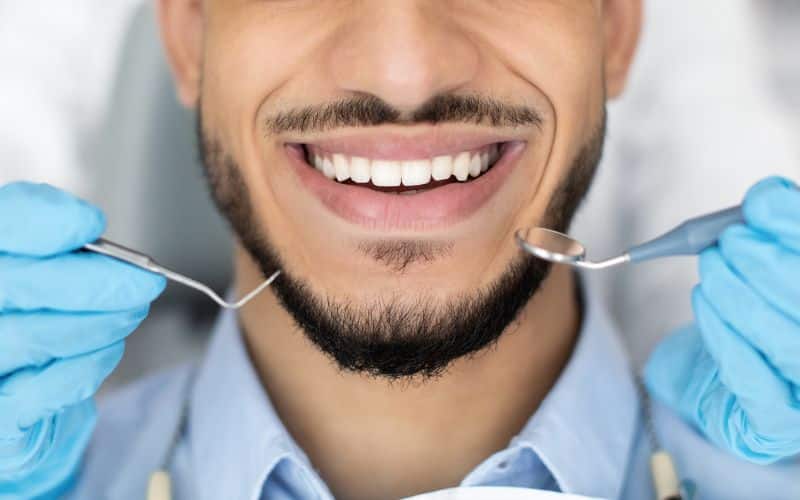Maintaining general health depends heavily on nutrition, which also affects the health of our teeth and gums. This article explores the complex link between nutrition and the health of our gums and inner teeth, or periodontal and endodontic tissues, and how our dietary decisions may majorly impact these tissues.
Introduction
Let’s start our adventure by quickly reviewing periodontal and endodontic health. The latter concentrates on the inside workings of the tooth, including the pulp and surrounding tissues, whereas the former deals with the gums and supporting structures. A robust and healthy oral environment depends on carefully balancing these elements.
Understanding Nutrition and Oral Health
Diet is crucial to our general health. Its effect on dental health is frequently overlooked, though. Our mouth is just one of the many body systems whose building blocks are derived from our food.
Essential Nutrients for Gum Health
Some nutrients are more important than others in maintaining gum health at its best. Gum tissues are greatly supported by minerals like calcium and phosphorus and vitamins like C and D. Gum resilience can be enhanced by consuming foods high in these nutrients, such as fruits, dairy products, and leafy greens.
Influence of Diet on Tooth Decay
Tooth decay is a major oral health risk frequently brought on by consuming too many sweets. It’s critical to comprehend how a balanced diet helps to avoid tooth decay. Minimizing sugary snacks and choosing nutrient-dense substitutes can greatly impact oral health.
Anti-Inflammatory Foods for Oral Health
Gum inflammation can result in several oral health problems. Anti-inflammatory foods like green tea, berries, and fatty fish can help reduce inflammation and support healthy gums. Flaxseeds and fish oil, which contain omega-3 fatty acids, are particularly advantageous.
The Gut-Oral Health Connection
It may surprise you to learn that the state of our gut microbiota directly impacts dental health. A healthy balance of bacteria in the stomach is fostered by consuming probiotics and prebiotics, which are present in yogurt, kefir, and some fruits and vegetables. This has a favorable impact on dental health.
Hydration and Its Significance
The unsung hero of dental health is water. Maintaining proper hydration is essential for producing saliva, which helps remove dirt and bacteria from the mouth. Conversely, dehydration raises the risk of oral health problems and can cause dry mouth.
Avoiding Harmful Substances
There is ample evidence of the harmful impact of tobacco use and excessive alcohol intake on dental health. Maintaining healthy gums and teeth requires limiting or avoiding certain chemicals completely.
Meal Timing and Its Effect on Teeth
Our dental health is also impacted by the time we eat. Regular snacking can exacerbate dental decay, particularly when it involves sweet or acidic meals. Creating a regular eating pattern and cleaning your teeth properly afterward will help lessen these effects.
The Role of Vitamins C and D
Renowned for its function in synthesizing collagen, vitamin C is essential for healthy gums. Furthermore, vitamin D aids in the absorption of calcium, which supports tooth health overall. Proper intake of these vitamins may be ensured by incorporating citrus fruits, berries, and sunshine exposure into our daily routine.
Periodontal Diseases and Nutritional Deficiencies
Studies show a direct correlation between the incidence of periodontal diseases and certain dietary deficits. Gum disease can be prevented and managed by addressing these deficits with a well-balanced diet or supplements.
Practical Tips for a Tooth-Friendly Diet
It takes more than just avoiding specific foods to create a tooth-friendly diet. It’s all about adopting a multinutrient-based, holistic approach. Following a balanced diet that includes dairy, lean proteins, fruits, and vegetables is important. Better oral health also results from reducing sugar-filled drinks and smart snacking.
Educating Children on Dental Nutrition
For children to have long-term dental health, they must develop healthy eating habits. Teaching kids how diet affects their gums and teeth may set the stage for a lifetime of good decisions. In this educational process, both parents and schools are essential players.
Consulting a Nutritionist for Dental Wellness
Consulting a nutritionist is smart if you’re looking for individualized advice on diet and how it affects dental health. When nutritionists and dentists work together, patients can receive individualized counseling considering their particular requirements and obstacles.
Conclusion
In conclusion, there is no denying the influence of diet on the health of the periodontal and endodontic tissues. Our food choices are vital to preserving a healthy oral environment because they protect gum tissues and stave against tooth decay. Regular dental check-ups with a periodontist further contribute to maintaining optimal oral health. Living lifelong dental health begins with adopting a nutrient-dense, well-balanced diet and practicing appropriate mouth hygiene.
FAQs
How does sugar contribute to tooth decay?
Overindulgence in sugar feeds dangerous oral bacteria, which produces acids that break down tooth enamel.
Can nutritional deficiencies cause gum problems?
Gum disease is associated with deficits in certain vitamins and minerals, including calcium and vitamin C.
What are some anti-inflammatory foods for oral health?
Anti-inflammatory foods and drinks include green tea, fatty fish, berries, and meals high in omega-3 fatty acids.
Is there a connection between gut health and oral health?
Yes, probiotics help to maintain the balance between a healthy gut microbiota and good mouth health.
How can parents encourage dental nutrition in children?
Parents may provide a good example for their kids by making healthy eating choices, restricting sugary snacks, and teaching them the value of a balanced diet.

